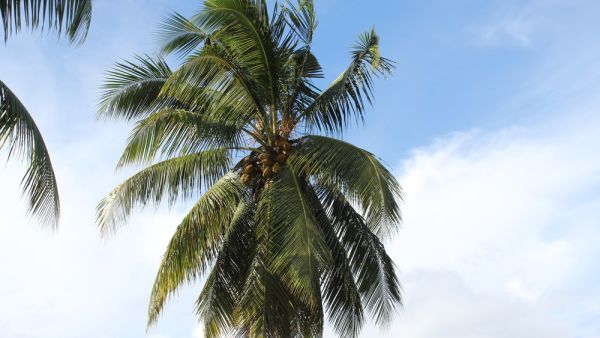Previously called “Improving Livelihoods by relying on the Environment”, SAAF is a local initiative that recycles palm leaves from local farms into handicrafts.
“As a pioneering country in date production, Jordan is recording an increasing number of palm plantations,” Nehaya Qasim, the founder of the initiative, told The Jordan Times.
She added that these plantations generate tonnes of waste that is often burnt, producing gases and pollutants with “drastic” effects on the environment.
SAAF organises local efforts in order to manage that waste in a manner that protects the environment, Qasim said, noting that “social empowerment”, particularly for women in pockets of poverty, is also one of SAAF’s main goals.
“We try to work towards that by training women in pockets of poverty to make use of zero cost recyclable material from their surrounding environment in order to create an income,” she added.
SAAF has trained women in villages within Aqaba, the Jordan Valley and Azraq, where palm farms are concentrated, according to Qasim.
“Nowadays, our work is mainly centred in Wadi Araba, Aqaba where we found the most turnout and demand on learning the craft,” she said, stressing that living conditions there are “very difficult with little to no job opportunities”.
The number of trained women from the beginning of the initiative up until now has reached 860 women, 32 of whom are full-time workers, according to Qasim, who noted that SAAF’s work was put on pause for a while in 2019 because of the pandemic, while training sessions have resumed online.
Qasim also pointed out that when it comes to traditional crafts, “stagnation” has become a major challenge for workers in that field, and SAAF aims to counter that issue by combining heritage and modernity.
“We wanted to make use of palm leaves in a way that highlights our heritage and traditions, while also adding a modern element in order to create unique and desirable products. For example, we incorporate mosaic inlays and Islamic patterns in our designs,” she said.
SAAF’s products include baskets, bags, hats, chairs, cases for musical instruments, and packaging for soap bars, dates, and dry fruits, in addition to a type of soap made from palm oil and a mixture of Dead Sea minerals.
“The results we have today didn’t happen overnight. They’re an accumulation of 15 years of work,” Qasim said, noting that each piece is made with great care and uses up roughly one hundred palm leaves, which are collected from local farms then cleaned, dried and cut.
Before the process begins, palm leaves, which are usually very stiff and breakable, also undergo treatment to make them flexible and easy to handle, she added.
Qasim also noted that “palm farmers also benefit from this process, since the initiative relieves them from dealing with huge amounts of waste generated by palm trees”.
“We are currently working on establishing a crafts village for handicrafts made from palm leaves, the first nucleus of which is already prospering in Wadi Araba,” she said, adding that efforts directed towards bringing traditional crafts into light as a significant part of the Jordanian heritage, are “much needed”.
This article has been adapted from its original source.










